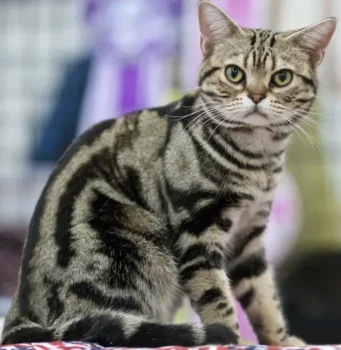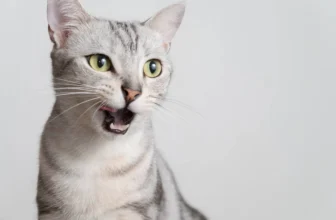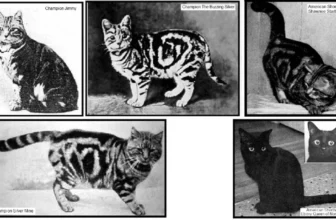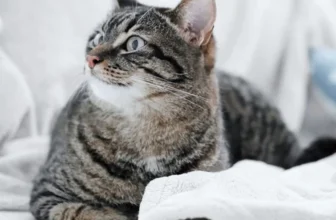As a cat owner, you want to ensure that your feline friend is healthy and happy. One way to achieve this is by getting them vaccinated. However, with so many different vaccines available for American Shorthair Cats, it can be overwhelming to understand which ones are necessary and why. In this article, we will explore the importance of vaccines for American Shorthair Cats, the basic and optional vaccines available, recommended vaccine schedules, and potential side effects. By the end of this article, you will have a better understanding of the vaccinations necessary to keep your American Shorthair Cat healthy and protected.
Why Vaccines are Important for American Shorthair Cats
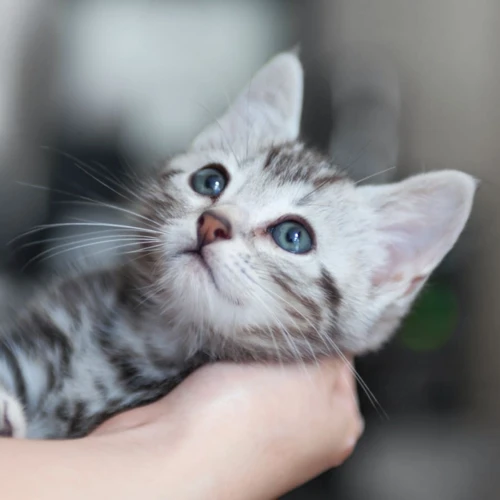
We all want our American Shorthair cats to live long, happy lives. One of the most crucial ways to ensure their good health and well-being is to get them vaccinated. Vaccines are a vital aspect of preventive healthcare that protect your cat from contracting various illnesses caused by deadly viruses and bacteria. In this article, we will explore the importance of vaccines to their health, why they are necessary, the different types of vaccines available, and their schedule. Vaccinations are just one component of a larger healthcare plan that should include a balanced diet, regular check-ups, and active playtime. If you want to learn more about these topics, please check out our related articles: Balanced Diet for Cats, Health Issues for Shorthair Cats, Active Healthy American Shorthair Cat, and American Shorthair Cat Check-Ups.
Preventive Healthcare
Preventive healthcare is crucial for American Shorthair cats to maintain their health and well-being. Vaccines play a significant role in preventive healthcare by providing immunity to various infectious diseases. Vaccinations help protect cats from various health issues and help them live longer, happier lives.
Vaccines work by:
- Introducing a small, harmless part of the pathogen to the immune system
- Allowing the immune system to create memory cells to fight against future infection
- Protecting cats from getting sick or facing severe complications caused by the disease
It is easier and less expensive to prevent diseases than treat them. American shorthair cats are prone to some preventable diseases, which makes vaccinations a crucial aspect of preventive healthcare. These diseases can be severe, sometimes fatal, but are preventable through timely vaccination.
Timely Vaccinations
- Eliminate the need for costly medical treatment
- Reduce the risk of complications from the disease
- Keep cats healthy and happy
Timely vaccinations are necessary for the longevity and well-being of American Shorthair cats. Younger cats are more susceptible to infections, and their immune systems are still developing. Thus, they require more frequent vaccines than adult cats. Vaccines protect cats from a range of diseases, such as rabies, feline distemper, feline herpesvirus, and more.
Note: While vaccines are essential for preventive healthcare, they are not 100% effective and do not guarantee total immunity. However, getting timely vaccines can significantly reduce the risk of disease in cats. Vaccines are not a replacement for veterinary care, so make sure to regularly take your cat to the vet for checkups.
Disease Control
Vaccines are crucial for disease control in American Shorthair Cats. Like humans, cats can suffer from various diseases, some of which may even lead to fatalities. Vaccinations can prevent many such illnesses and keep your cats healthy. Some of the common diseases that American Shorthair Cats may contract include:
| Disease Name | Symptoms | Prevention through Vaccinations |
|---|---|---|
| Feline Panleukopenia | Vomiting, lethargy, fever, anemia, and dehydration | Vaccinations against Feline Distemper and Feline Herpesvirus can prevent Feline Panleukopenia |
| Feline Leukemia Virus | Weight loss, loss of appetite, fever, anemia, and cancer | Vaccination against Feline Leukemia Virus can prevent this disease |
| Feline Immunodeficiency Virus | Weight loss, loss of appetite, fever, and lethargy | Vaccines are not completely effective against this disease, but getting regular vaccinations can ensure that your cat’s immune system remains healthy |
| Feline Calicivirus | Sneezing, fever, ulcers in the mouth, and runny nose | Vaccines against Feline Calicivirus can prevent this disease |
| Rabies | Aggression, seizures, paralysis, and sudden death | Vaccination against Rabies virus can prevent this fatal disease |
Vaccines not only protect your cat from diseases, but also the larger cat community. Vaccinated cats pose a lower risk of spreading disease to other cats and can help control disease outbreaks. It is important to ensure that your American Shorthair Cat is up-to-date on their vaccinations.
Legal Requirements
In the United States, vaccinating cats, including American Shorthair cats, is not just a matter of preventive healthcare, but also a legal requirement. State laws mandate the vaccination of pets against certain diseases, including rabies. Rabies is a life-threatening disease for both animals and humans, and it is critical to keep pets up to date on their rabies vaccine. Failure to do so can result in hefty fines or even seizure of the animal by local authorities.
Some states also require cats to be vaccinated against other diseases such as feline distemper, feline herpesvirus, and feline calicivirus. It is important to check with your local animal control or veterinary office to determine which vaccines are mandatory in your area.
In addition to complying with legal requirements, vaccinating your American Shorthair cat against other diseases is equally important. Vaccines not only protect your cat from diseases but also help control and prevent the spread of infectious diseases to other animals and humans.
Thus, make sure to keep accurate records of your cat’s vaccinations and provide them to your veterinary office when required. By doing so, you can ensure that your American Shorthair cat remains healthy and that you comply with the legal requirements in your state.
Basic Vaccines for American Shorthair Cats
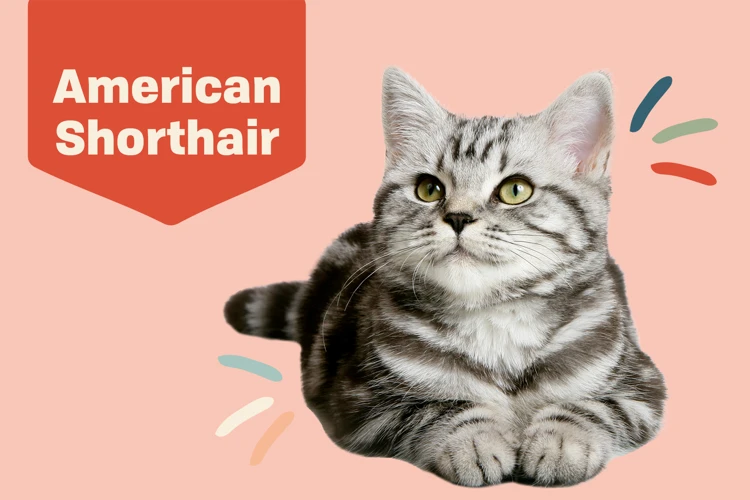
As a responsible American Shorthair cat owner, it is important to be aware of the basic vaccines necessary to ensure the health and well-being of your furry friend. Vaccines are a crucial aspect of feline preventative health care, helping to protect against a range of potentially life-threatening diseases. By vaccinating your American Shorthair, you are taking positive steps to safeguard their health and increase their immunity against harmful pathogens. Let’s delve into some of the essential vaccinations that should be given to your American Shorthair cat to keep them safe and healthy.
Rabies Vaccine
The Rabies Vaccine is perhaps the most important vaccination for all cats, including American Shorthairs. It is required by law in most states for cats and dogs to be vaccinated against rabies. Rabies is a viral disease that can be transmitted to cats through the bite of an infected animal, such as a bat or raccoon. Rabies can be fatal to both cats and humans, and there is currently no cure once symptoms appear. Prevention through vaccination is crucial.
How does the Rabies vaccine work?
The vaccine works by stimulating the cat’s immune system to produce antibodies against the rabies virus. If the cat is later exposed to the virus, these antibodies will help prevent the virus from causing serious illness or death.
When should American Shorthairs be vaccinated against rabies?
In most states, American Shorthair cats are required by law to be vaccinated against rabies at around 12 weeks of age. Annual boosters are then typically required. However, the frequency of booster shots may vary depending on the specific state and local laws. Your veterinarian can provide guidance on the recommended rabies vaccine schedule for your American Shorthair cat.
Side effects of Rabies vaccine
While serious side effects of the rabies vaccine are rare, they can occur. Some of the most common side effects include soreness at the injection site, fever, lethargy, and reduced appetite. More serious side effects, such as vomiting, diarrhea, and difficulty breathing, can occur but are very rare. If your American Shorthair exhibits any of these side effects after receiving the rabies vaccine, you should contact your veterinarian immediately.
Table of Common Vaccinations for American Shorthair Cats
| Vaccination | Description | Recommended |
|---|---|---|
| Rabies | Protects against the rabies virus | Required by law |
| Feline Distemper | Protects against Panleukopenia, Rhinotracheitis and Calicivirus | Recommended |
| Feline Leukemia Virus | Protects against the FeLV virus | Recommended for outdoor cats and multi-cat households |
| Bordetella | Protects against respiratory infections | Recommended for cats in boarding or shelter environments |
Feline Distemper Vaccine
The Feline Distemper Vaccine is an essential vaccine for American Shorthair Cats as it helps prevent a highly contagious and life-threatening disease known as feline panleukopenia. This viral infection affects a cat’s gastrointestinal tract, nervous system, and immune system. If left untreated, it can lead to severe dehydration, diarrhea, vomiting, and even death.
The Feline Distemper vaccine aims to provide immunity against the feline panleukopenia virus. It is a combination vaccine that also protects against feline herpesvirus and calicivirus. The vaccine is typically administered as a series of shots during kittenhood and requires booster shots to maintain immunity.
The Feline Distemper Vaccine is crucial for the well-being of American Shorthair Cats. It is a core vaccine recommended for all cats, regardless of their lifestyle. Pet owners should consult with their veterinarians to determine the appropriate vaccination schedule and frequency based on their cat’s health condition, age, and exposure risk.
Here are some important things to know about the Feline Distemper Vaccine:
- The vaccine is safe and well-tolerated by most cats. However, some cats may experience mild side effects such as lethargy, fever, and localized swelling at the injection site.
- The vaccine’s efficacy lasts for at least three years following the initial vaccination series, after which a booster shot is necessary to maintain immunity.
- It is crucial to keep up with the recommended vaccination schedule to ensure that your cat is always protected against feline panleukopenia, herpesvirus, and calicivirus.
- In the event of a feline panleukopenia outbreak, your cat’s vaccination status will determine their level of protection against the virus. Infected cats often require hospitalization, intensive care, and supportive treatment that can become costly and emotionally draining for pet owners.
The Feline Distemper Vaccine is an integral component of preventive healthcare for American Shorthair Cats. Pet owners should prioritize their cats’ health by staying up-to-date with vaccination schedules and booster shots to ensure that their furry friends are protected against feline panleukopenia and other viral infections. Consult with your veterinarian about the appropriate vaccine schedule and frequency based on your cat’s lifestyle and exposure risk.
Feline Calicivirus Vaccine
The Feline Calicivirus Vaccine is an essential vaccine that protects American Shorthair cats from a highly contagious respiratory disease. Here are some key points to keep in mind regarding this vaccine:
- Vaccine Composition: The Feline Calicivirus Vaccine typically includes a modified-live virus that is designed to trigger the cat’s immune system to build up defenses against the actual virus.
- Mode of Administration: The vaccine is usually administered subcutaneously, which means it is injected under the cat’s skin. Alternatively, it can also be given nasally, which involves spraying the vaccine into the cat’s nostrils.
- Vaccine Efficacy: Although the vaccine may not provide complete protection against Feline Calicivirus, it can effectively reduce the severity of symptoms and minimize the risk of complications, such as pneumonia.
- Vaccine Schedule: The Feline Calicivirus Vaccine is usually administered as part of a combination vaccine that also includes protection against other diseases. The vaccine schedule for cats, including American Shorthairs, typically involves a series of vaccinations that begin in kittenhood and continue through adulthood. Typically, a kitten receives three Feline Calicivirus Vaccinations, each given 3-4 weeks apart, while adult cats receive annual boosters.
- Potential Side Effects: While the Feline Calicivirus Vaccine is generally safe, some cats may experience mild side effects such as lethargy or reduced appetite. More serious reactions are rare but can include severe allergic reactions or anaphylaxis. It is important to consult with your veterinarian to address any concerns about your cat’s potential reactions to the vaccine.
Given the prevalence of Feline Calicivirus and the ease with which it can be spread, vaccinating American Shorthair cats with the Feline Calicivirus Vaccine is crucial. Whether you are adopting a kitten or bringing an adult cat into your home, it is important to stay current with your pet’s vaccinations and work with your veterinarian to ensure your cat remains healthy and protected.
Feline Herpesvirus Vaccine
The Feline Herpesvirus Vaccine is another crucial vaccine for American Shorthair Cats. Feline herpesvirus is a common respiratory disease in cats that can be potentially fatal if not treated properly. This vaccine is designed to protect your cat from the virus, which spreads through direct contact with infected secretions from the eyes, nose, or mouth of an infected cat.
Benefits of the Feline Herpesvirus Vaccine:
- Prevention of respiratory infections caused by Feline herpesvirus.
- Reduction of virus shedding, which means lesser chances of transmission to other cats in the environment.
- The vaccine can also be effective for reducing the severity of clinical signs on cats that have a higher probability of catching the virus.
How the Vaccine is administered:
- The Feline Herpesvirus Vaccine is administered subcutaneously, which means it is injected just below the surface layer of the skin.
- Typically, cats need to be vaccinated twice, three to four weeks apart, during their kitten years. After the initial vaccination, cats will require booster shots every year to maintain the protection against the virus.
- Adult cats that haven’t received the vaccine should also receive an initial dose, followed by a booster shot a few weeks later and then yearly shots.
Side Effects:
- The vaccine is generally safe, but some cats may develop mild reactions, such as lethargy, fever, and pain at the injection site.
- In rare cases, cats may develop more severe reactions such as anaphylaxis, which requires immediate veterinary attention.
It’s essential to consult with your vet about the Feline Herpesvirus Vaccine and whether it is necessary for your American Shorthair Cat. With proper preventive healthcare, you can ensure your cat’s well-being and keep them healthy and thriving for years to come.
Optional Vaccines
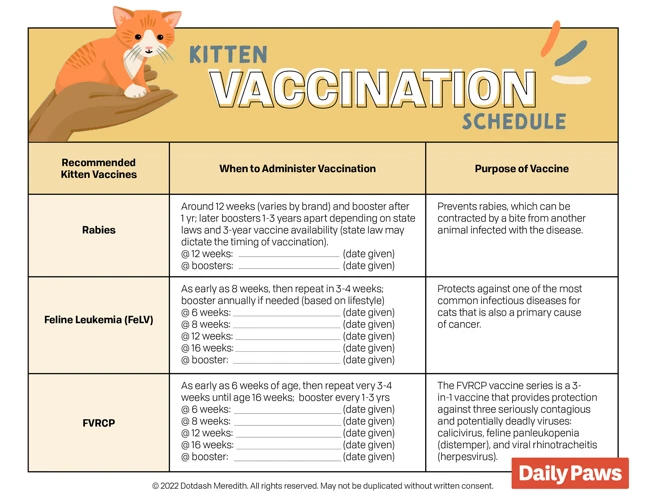
When it comes to keeping our American Shorthair cats healthy, vaccines are a vital part of preventive care. While some vaccines are considered basic necessities, there are also optional vaccines that can provide further protection against specific diseases. Although optional, these vaccines can still play an important role in your cat’s overall health. Let’s take a closer look at some of the optional vaccines available for your American Shorthair cat.
Feline Leukemia Virus Vaccine
Feline Leukemia Virus (FeLV) is a common retrovirus that affects cats, particularly those with a weak immune system. Vaccinating your American Shorthair cat against FeLV is important to prevent this potentially fatal disease. The FeLV vaccine is optional but highly recommended, especially for cats that live outdoors or come into contact with other cats.
The FeLV vaccine is given in a series of two injections 2-4 weeks apart for kittens. Adult cats may require the same series of injections or a single booster shot, depending on their health status and lifestyle. FeLV vaccination is not a one-size-fits-all approach, and it’s best to talk to your veterinarian about the recommended schedule for your cat.
Table: Feline Leukemia Virus Vaccine Information
| Vaccine Name | Feline Leukemia Virus Vaccine |
| Type of Vaccine | Inactivated virus vaccine |
| How it’s Given | Subcutaneous injection |
| Recommended for | Cats aged 9-12 weeks, booster recommended at 1 year, then every 1-2 years based on lifestyle and potential exposure |
| Potential Side Effects | Injection site reaction, fever, anorexia |
| Effectiveness | Highly effective in preventing FeLV |
The FeLV vaccine is generally considered safe, but like any vaccine, it can cause side effects such as injection site reactions, fever, or anorexia. These side effects are generally mild and self-limiting, but if you notice any severe reactions, contact your veterinarian immediately.
Getting your American Shorthair cat vaccinated against FeLV is a wise decision to protect them from this dangerous disease. Talk to your veterinarian about the best vaccination schedule for your cat based on their lifestyle and potential exposure.
Bordetella Vaccine
The Bordetella vaccine is an optional vaccine for American Shorthair cats but is highly recommended for cats that are frequently exposed to other cats, especially in shelters or boarding facilities. This vaccine is used to prevent a respiratory infection caused by the bacterium Bordetella bronchiseptica. It is highly contagious and can be transmitted through both direct and indirect contact with infected cats.
Bordetella Vaccine Information
The Bordetella vaccine is typically given intranasally and can be administered to kittens as young as eight weeks old. In some cases, a second booster vaccine may be required two weeks later. Adult cats can also receive the vaccine, but they may require a different dosing schedule.
The vaccine should be administered by a licensed veterinarian, and it is important to follow the recommended dosage and schedule. Like with all vaccines, the Bordetella vaccine has potential side effects, so careful observation after administration is recommended.
Potential Side Effects of the Bordetella Vaccine
The potential side effects of the Bordetella vaccine are similar to those of other vaccines and can include fever, lethargy, decreased appetite, and rare cases of anaphylactic shock. If any of these side effects are observed after vaccination, it is important to contact a veterinarian immediately.
It is important to note that while the Bordetella vaccine can prevent the Bordetella bronchiseptica infection, it cannot prevent all upper respiratory infections. Other viruses such as feline herpesvirus and feline calicivirus can also cause upper respiratory infections in cats.
Conclusion
The Bordetella vaccine is an optional vaccine for American Shorthair cats but can be crucial for cats that have frequent exposure to other cats. It is important to follow the recommended dosage and schedule and to monitor for any potential side effects. Even with vaccination, it is still possible for cats to contract respiratory infections, so practicing good hygiene and minimizing exposure to potentially infected cats is also essential for maintaining good feline health.
Chlamydia Vaccine
The Chlamydia vaccine is optional for American Shorthair cats. This vaccine is designed to provide protection against Chlamydia felis, an infection that causes conjunctivitis, respiratory disease, and infertility in cats. While this vaccine is not a core vaccine, it is highly recommended for cats that are at high risk of infection.
What is Chlamydia Felis?
Chlamydia felis is a bacterial infection that causes respiratory and ocular infections in cats. It is spread by direct contact with infected cats, and symptoms can range from mild to severe. In some cases, cats may become carriers of the disease without showing any symptoms. Kittens and cats that live in crowded conditions, such as shelters or multi-cat households, have a higher risk of contracting the infection, as do cats that are exposed to other infected animals.
How is the Chlamydia Vaccine Administered?
The Chlamydia vaccine is typically administered as an injection under the skin, and it may be combined with other vaccines. Once your cat receives the vaccine, they will need to receive booster shots at regular intervals to maintain protection.
Side Effects of the Chlamydia Vaccine
Like all vaccines, the Chlamydia vaccine can cause side effects in some cats. The most common side effects include lethargy, loss of appetite, and temporary swelling at the injection site. In rare cases, cats may experience an allergic reaction to the vaccine. If your cat experiences any of these side effects after receiving the vaccine, be sure to contact your veterinarian.
Chlamydia Vaccine Schedule for American Shorthair Cats
The Chlamydia vaccine is typically administered as an optional vaccine, and the schedule for administering the vaccine may vary depending on your cat’s age and overall health. Most veterinarians recommend administering the vaccine to kittens at around 9-12 weeks of age, with booster shots given at regular intervals thereafter. Adult cats that are not vaccinated should receive two doses of the vaccine, given 3-4 weeks apart.
| Age | Vaccine Schedule |
|---|---|
| 9-12 weeks | Initial dose, followed by booster shots every 3-4 weeks until they reach 16 weeks of age. Booster shots will then be given annually. |
| Adult Cats | If the cat has never been vaccinated, they will require two doses of the vaccine, given 3-4 weeks apart. Booster shots will then be given annually. |
The Chlamydia vaccine is an optional vaccine that provides protection against Chlamydia felis, an infection that can cause respiratory and ocular infections in cats. While this vaccine is not a core vaccine, it is highly recommended for cats that are at high risk of infection. If you’re unsure whether your American Shorthair cat needs the Chlamydia vaccine, be sure to talk to your veterinarian.
Vaccine Schedule for American Shorthair Cats
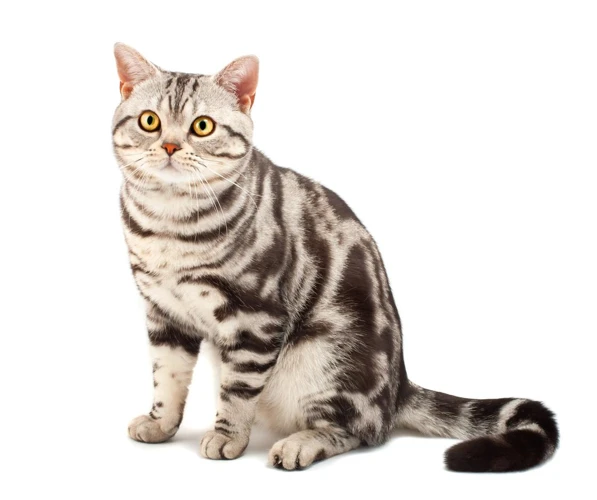
One of the responsibilities of being a cat owner is to ensure your American Shorthair cat stays healthy and protected from harmful diseases. One way to achieve this goal is by following a regular vaccine schedule. Vaccinations can provide your furry friend with immunity against certain illnesses and germs. In this section, we will discuss the recommended vaccination timeline for American Shorthair cats, from kittens to adult cats, including their primary and booster shots. Remember that vaccines are not only necessary for your cat’s health but also safeguard the community they live in. Let’s dive into it and learn more about the vaccine schedule for American Shorthair cats.
Kitten Vaccinations
As a new owner of an American Shorthair kitten, it is important to start them on a vaccination schedule as early as possible to ensure their health and well-being. Below is a table outlining the recommended vaccines for kittens, the recommended age for each shot, and the benefits of each vaccine.
| Vaccine | Recommended Age | Benefits |
|---|---|---|
| Rabies Vaccine | 12-16 weeks | Protects against the deadly rabies virus |
| Feline Distemper Vaccine | 6-8 weeks | Protects against panleukopenia virus (Feline distemper), which is highly contagious and often fatal |
| Feline Calicivirus Vaccine | 6-8 weeks | Prevents respiratory infections caused by calicivirus |
| Feline Herpesvirus Vaccine | 6-8 weeks | Prevents respiratory infections caused by herpesvirus |
| Feline Leukemia Virus Vaccine | 8-12 weeks | Prevents against feline leukemia virus, which can lead to cancer and other serious illnesses |
It is important to note that some veterinarians may recommend a different vaccination schedule based on the kitten’s individual needs and risk factors. It is also important to follow up on booster shots for continued protection against these diseases. By staying up to date on vaccinations, you can ensure your kitten has the best chance at a healthy and happy life.
Adult Cat Vaccinations
As your American Shorthair cat ages, it is important to continue with their vaccinations to ensure they are protected from potentially harmful diseases. Here are some of the vaccines recommended for adult cats:
Feline Distemper Vaccine (FVRCP): This vaccine is a combination vaccine that protects against three diseases: feline viral rhinotracheitis, calicivirus, and panleukopenia. Adult cats should receive this vaccine every 3 years to maintain their immunity.
Rabies Vaccine: The rabies vaccine is required by law in most states and should be given to adult cats every 1-3 years depending on the vaccine used.
Feline Leukemia Virus Vaccine (FeLV): This vaccine is recommended for adult cats that spend time outdoors or live with other cats that go outdoors. It should be boostered annually for at-risk cats.
Bordetella Vaccine: This vaccine is recommended for cats that have frequent contact with other cats, such as those living in shelters or multiple cat households. It should be boostered every 6 months for at-risk cats.
Chlamydia Vaccine: This vaccine protects against chlamydia, a bacterial infection that can cause respiratory infections in cats. It is recommended for cats with a high risk of exposure and should be boostered annually.
Remember, each cat is different and their vaccination needs may vary based on their individual lifestyle and environment. Consult with your veterinarian to determine the best vaccination schedule for your American Shorthair cat.
Potential Side Effects of Vaccines
When it comes to vaccinating American Shorthair cats, it is important to note that there are potential side effects that pet owners should be aware of. While the vast majority of cats will not experience any negative reactions, there is always a small risk of side effects occurring after a vaccination.
Some of the potential side effects that could occur after a vaccination for American Shorthair cats include fever, lethargy, loss of appetite, vomiting, and diarrhea. Additionally, some cats may experience swelling or pain at the injection site. These symptoms are typically mild and will resolve on their own within a few days of the vaccination.
In rare cases, more serious side effects could occur. These could include allergic reactions, anaphylaxis, or even death. However, it is important to note that instances of severe side effects are extremely rare.
If your American Shorthair cat experiences any side effects after receiving a vaccination, it is important to monitor them closely. In most cases, the symptoms will resolve on their own within a few days. However, if your pet experiences severe or distressing symptoms, it is important to contact your veterinarian as soon as possible.
While the benefits of vaccinating American Shorthair cats far outweigh the potential risks, it is important for pet owners to be aware of the possible side effects that could occur. By staying informed and closely monitoring your pet after a vaccination, you can help keep your American Shorthair cat healthy and protected.
Conclusion
In conclusion, vaccinating your American Shorthair cat is an essential aspect of responsible pet ownership. It ensures that your furry companion lives a healthy life and is protected from serious diseases that could have potentially fatal consequences. Remember to consult with your veterinarian to determine the right vaccine schedule for your cat based on their age and lifestyle. While vaccines may have some potential side effects, the benefits of vaccinating your cat far outweigh the risks. By providing preventive healthcare through vaccines, you are not only keeping your own pet healthy, but also contributing to the larger effort of disease control in the feline population. So, make sure to schedule your cat’s vaccines today and provide them with the best possible care and protection they deserve. With proper vaccination, your American Shorthair cat can live a long, happy, and healthy life by your side.
Frequently Asked Questions
1. Can American Shorthair cats get sick even with vaccines?
Yes, vaccines do not guarantee full immunity but can reduce the risk of contracting diseases significantly.
2. How often should American Shorthair cats be vaccinated?
Cats should receive vaccinations every year or as recommended by a veterinarian to maintain immunity against diseases.
3. Are vaccines safe for American Shorthair cats?
Yes, vaccines are generally safe for cats, but some rare adverse reactions may occur. It’s essential to observe the cat and report any unusual changes to a veterinarian immediately.
4. Can American Shorthair cats be over-vaccinated?
Yes, over-vaccination is possible and may lead to severe adverse effects. It’s essential to consult with a vet to determine the best and necessary vaccines for the cat.
5. Are there alternative ways to boost immunity in American Shorthair cats?
Yes, a healthy diet, regular exercise, and a stress-free environment can also help boost the cat’s immune system.
6. What is Feline Leukemia Virus, and why is its vaccine optional?
Feline Leukemia Virus is a viral disease that can be fatal to cats. The vaccine is optional because not all cats are at risk of contracting the disease. It’s important to consult with a vet to determine if the vaccine is necessary for the cat.
7. Are there any special instructions after a cat receives vaccines?
It’s essential to keep the cat in a stress-free environment for the next 24 hours after vaccination. Cats may experience some side effects, and monitoring can help detect any adverse reactions.
8. What are the common side effects of vaccines in American Shorthair cats?
Common side effects include injection site pain, mild fever, lethargy, and loss of appetite.
9. Can American Shorthair cats get vaccinated while pregnant?
Cat pregnancy is a delicate process, and it’s best to consult with a vet before vaccinating a pregnant cat. Some vaccines may not be safe and may harm the fetuses.
10. What is Bordetella, and why is its vaccine given to American Shorthair cats?
Bordetella is a bacterial disease that can cause respiratory problems in cats. The vaccine is typically given to American Shorthair cats who are at risk of contracting the disease, such as those living in multi-cat households or catteries. It’s essential to consult with a vet to determine if the vaccine is necessary for the cat.

